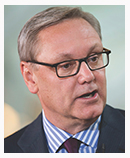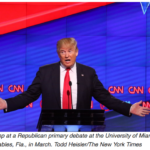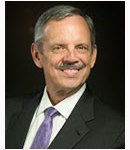First hour of the show today, Kerby welcomes New York Times best selling author, Edward Conard. He tells us more about his book, The Upside of Inequality: How Good Intentions Undermine the Middle Class.
For the first two segments of the second hour we hear from Robert Knight, senior fellow for the American Civil Rights Union. He tells us more about his recent article in the Washington Times regarding why Mandatory voter registration’ is a bad idea

He is a visiting scholar at the American Enterprise Institute. Previously, he was a founding partner of Bain Capital, where he worked closely with his friend and colleague, former presidential candidate Mitt Romney.
In May of 2012, Conard published Unintended Consequences: Why Everything You’ve Been Told About the Economy Is Wrong. The book was featured on the cover of the New York Times Sunday Magazine and went on to become a New York Times top ten non-fiction bestseller. Because of the publicity surrounding the publication of his book, Conard was the tenth most searched author on Google in 2012.
Since its publication, Mr. Conard has made over 100 television appearances in which he has debated leading economists including Paul Krugman, Joe Stiglitz, Alan Kruger, Austen Goolsbee, and Jared Bernstein; journalists including Jon Stewart, Fareed Zakaria, Chris Hayes, and Andrew Ross Sorkin; and politicians such as Barney Frank, Howard Dean, and Eliot Spitzer.
Prior to Bain Capital, Conard worked for Wasserstein Perella & Co., an investment bank that specialized in mergers and acquisitions, and Bain & Company, a management-consulting firm, where he led the firm’s industrial practice.
Conard has a master of business administration degree from Harvard Business School and a bachelor of science degree in engineering from the University of Michigan.
Four years ago, Edward Conard wrote a controversial bestseller, Unintended Consequences, which set the record straight on the financial crisis of 2008 and explained why U.S. growth was accelerating relative to other high-wage economies. He warned that loose monetary policy would produce neither growth nor inflation, that expansionary fiscal policy would have no lasting benefit on growth in the aftermath of the crisis, and that ill-advised attempts to rein in banking based on misplaced blame would slow an already weak recovery. Unfortunately, he was right.
Now he’s back with another provocative argument: that our current obsession with income inequality is misguided and will only slow growth further.

He was a journalist for 15 years, including seven as an editor and writer at the Los Angeles Times. He has B.S. and M.S. degrees in Political Science from American University, and was a Media Fellow at the Hoover Institution, Stanford University.
He has held senior positions at the Culture & Family Institute at Concerned Women for America, the Family Research Council, the Heritage Foundation, Coral Ridge Ministries, and the Media Research Center. He wrote and directed the documentary videos Hidden Truth: What You Deserve to Know about Abortion, and The Children of Table 34, about sex researcher Alfred Kinsey.


 Listen Online
Listen Online Watch Online
Watch Online Find a Station in Your Area
Find a Station in Your Area


 Watch Now
Watch Now Listen Now
Listen Now 






 Listen Now
Listen Now Watch Online
Watch Online
